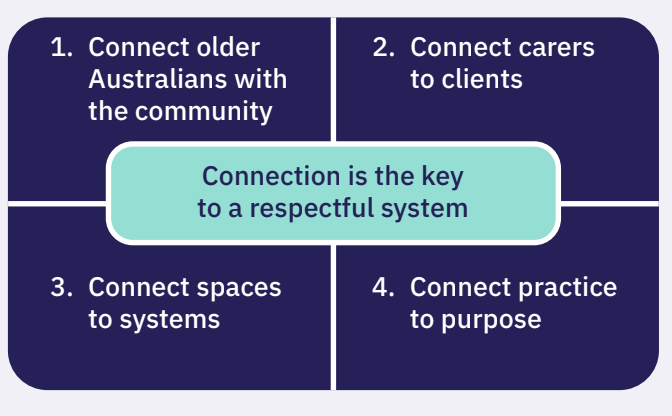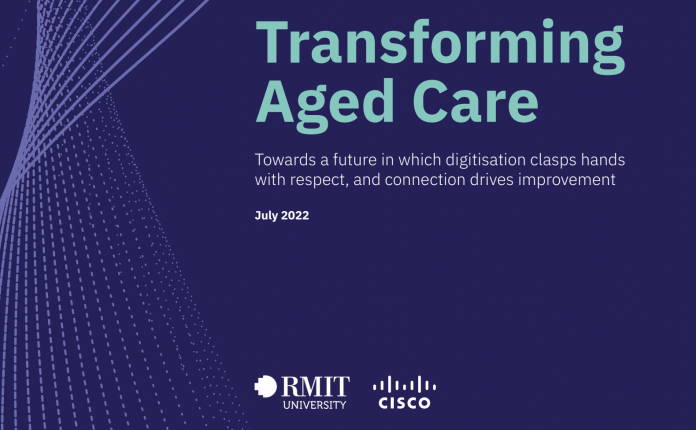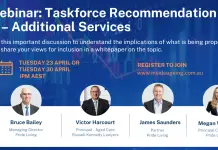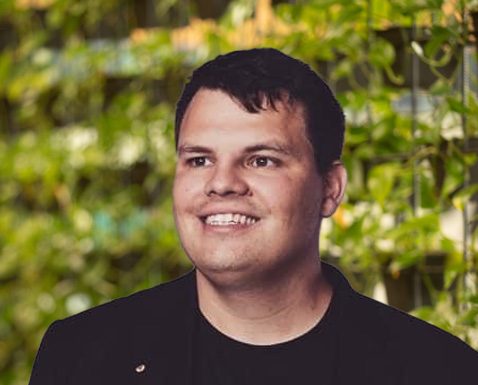RMIT-Cisco’s Health Transformation Lab has released the report: Transforming aged care – towards a future in which digitisation drives respect and connection, in response to the Royal Commission into Aged Care Quality and Safety.
The report finds that technology and digitisation have a critical role to play in transforming the aged care system that can be scaled to meet the needs of the 1.2 million Australians who currently use the system and to provide a high standard of person-centred care.
The report emphasises how using technology to automate and streamline non-care duties will vastly improve the quality of care by freeing up carers’ time, an enormous amount of which is spent on non-care tasks. It will also streamline the achievement of the Royal Commission’s recommended 200 minutes of staff time per resident, per day and enhance overall staff satisfaction.
New technologies that can balance monitoring, privacy and provide risk management solutions will also make a meaningful difference in fostering increased choice and dignity for older Australians, including for the 68.1% of aged care residents who have moderate to severe cognitive impairment. Reimagining the use of existing technologies also has a key role to play in managing risk while also enabling residents to lead lives of autonomy, dignity and respect.
The report highlights the current digital mismatch between the aged care sector and the tech-savvy senior, noting that while more than 61% of older people use the internet, very few aged care providers offer wireless internet access as standard for residents. Meanwhile, 42% of aged care providers have no digital strategic plan, less than half use any smart technology, and only 14% are using fully integrated software systems.

Advances in technologies, such as machine learning interfaces, Wi-fi/ 5G and IoT (internet of things) should be better leveraged.
Executive Chair of the RMIT-Cisco Health Transformation Lab, Professor Vishaal Kishore said: “This report contends that technology can and should be core to how we generate a respectful, quality-driven aged care system. Put simply, technology enables us to treat the elderly with respect.
“The report argues that digital transformation is critical to creating an aged care system that can be scaled to meet the future needs and provide the respect and quality that is the motivating force of carers, the aim of providers, and the right of every user of the system.
“A large-scale system re-orientation is needed with technology and digitisation at the core of the story. There is the potential for technologies in aged care that are far deeper and more transformative than might be imagined. Technology interventions must be systemic, they must be deep, and they must be human-centred,” Prof Kishore added.
To coincide with the launch of the report, the RMIT University Health Transformation Lab has a range of technologies on display to demonstrate how they can make a real impact in aged care setting.
These include:
- Smart sensors that can detect the risk of falls
- Technology that can detect behavioural risks, such as conflict in common areas
- Devices that can alert people of physical hazards, in real-time
- Technology that alerts surface disruption and stalled behaviour (such as not eating a meal)
- Facial recognition and radio frequency identification technologies to assist with the automatic capturing of face-to-face care time
- Connecting digital worlds through telehealth, securely and independently
- And even a robotic dog, to perform typically manual tasks like deliveries
The partnership between Cisco and RMIT is part of the National Industry Innovation Network (NIIN) – a Cisco-led industry and university alliance, aimed at driving the combined attention of our best minds, technologists, industry capabilities and academic resources to solve pressing industry and social challenges through the technology-enabled innovation.










